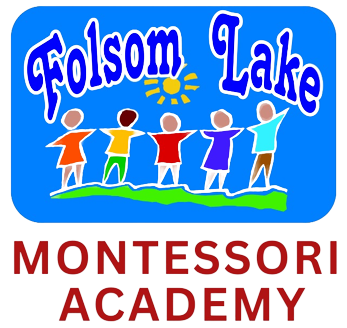OUR APPROACH
Folsom Lake Montessori Academy
OUR APPROACHES
Folsom Lake Montessori Academy
Montessori Method
Montessori Philosophy
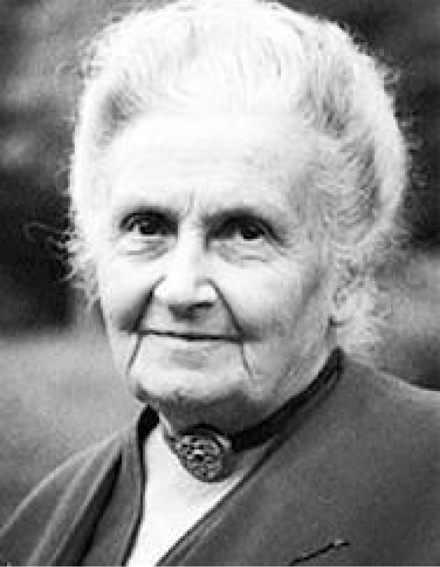
Maria Montessori:
Maria Montessori was a doctor, research scientist, and educator from the late 1800’s – early 1900’s who made observations about how children learn. The Montessori Philosophy of Educationist based on Dr. Maria Montessori’s observation that children have a natural desire to learn and that stages of development exist for which there should be corresponding educational environments and trained adults (Teachers) who prepare these environments. Children can learn independently in a prepared environment with teachers who guide and establish connections between the student and the environment. By providing freedom of choice, this enriched learning environment cultivates individuals who learn to make independent decisions and to solve problems creatively. They learn to develop healthy social relationships, to develop skills in concentration, and to master basic academic and life skills. At FLMA students are challenged to create, explore and imagine.
Montessori Philosophy:
The Montessori philosophy was originally developed in the early nineteen hundreds by Dr. Maria Montessori to enhance a child’s opportunities for learning, relevant to the student’s relationship to the world around him/her. Over the years, the philosophy has evolved to challenge the whole child’s personality and intellect in a variety of multicultural settings. Her teaching system is based on a strong integration of adult to child observation and practical hands on activities. From her observations, she designed functional learning environments created to support and enhance a child’s innate desire to learn about the world around him/her. Classroom materials offer learning experiences in a clear, concrete manner. Students are encouraged to use motor and intellectual discovery when working with these materials. There is an emphasis on the sequential and orderly acquisition of both motor and cognitive skills. This ordered work method also allows for individualization and usually offers a two to three year age span within the classroom; enabling students to work and learn at their own pace, as well as in group settings. The integration of varied age spans allows older students to gain confidence by working and role modeling materials with younger students. Collaborative learning and projects completed in groups encourage students to teach and learn with each other.
Montessori Education provides children the opportunity to fully develop their innate intellectual, physical, social and emotional potential. Folsom Lake Montessori Academy encourages parents to be an integral part of their child’s education by learning about the Montessori philosophy, observing in the classrooms, and volunteering in the school.
Core Curriculum
Curriculum
The core of the Montessori Primary Curriculum is made up of Practical Life, Sensorial, Language, Math, Science, Geography, Botany and Art.
Evaluation
Because Montessori believes in individually paced academic progress, we do not assign letter grades or rank students within each class according to their achievement. Student progress, however, is measured in different ways, which includes:
International Montessori Council
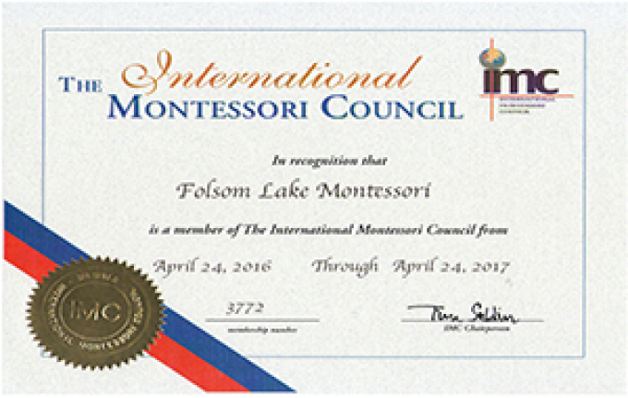
IMC Certificate April, 2016
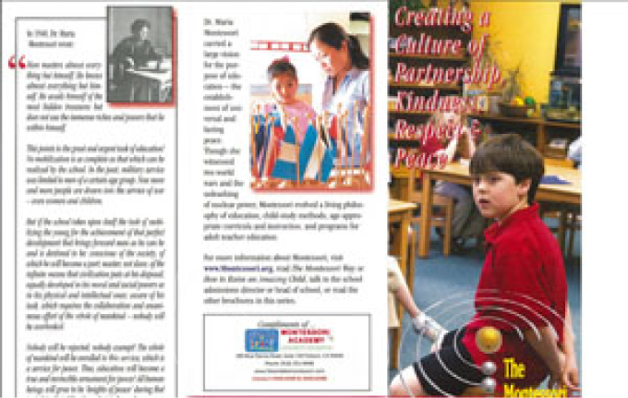
Montessori Culture of Partnership
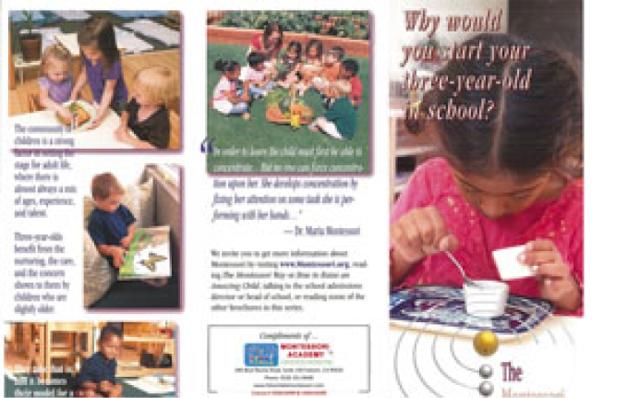
Montessori 3 Year olds in School

Montessori Kindergarten Year

Montessori Nurtures Curiosity
Extra Curricular
Enriching Experiences
With today’s busy schedules, it s difficult to get our children to the various programs like Amazing Atheletes, Spanish class, Karate, Gymnastics, Music & Dance (Music Mike), Learning French etc., FLMA offers an enriched program for all the above with instructors that specialize in working with young children. These programs are optional and there is no additional charge for enrolling in them. Our goal is to encourage all children to participate in to the above enrichment programs.
Contact Us

Contact Us

